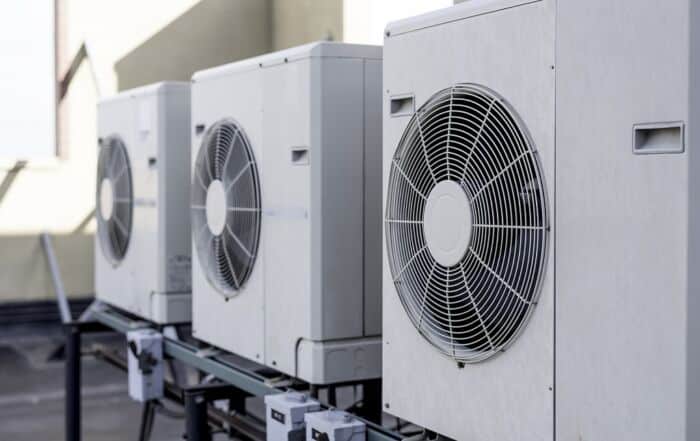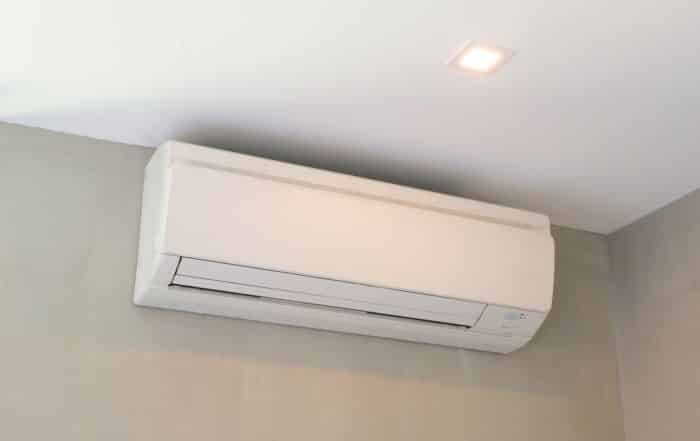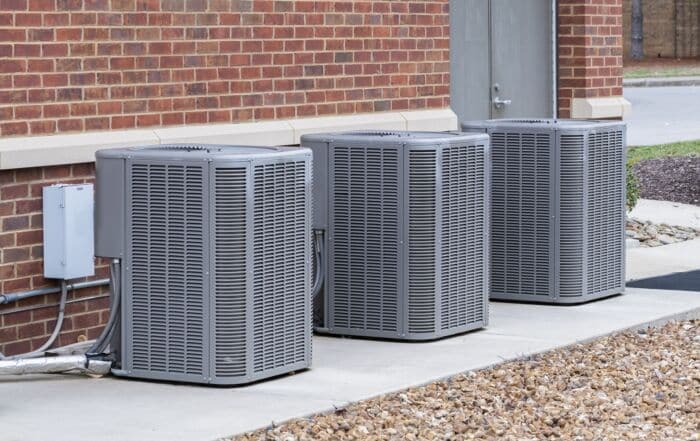In this article, we will provide a comprehensive guide on how to identify, troubleshoot, and prevent problems with a bad condenser fan motor.
Air conditioning and heat pump systems rely on a functional condenser fan motor to remove heat and maintain proper system operation. A malfunctioning condenser fan motor can lead to a host of problems, including overheating, high-pressure events, and system shutdowns, which can ultimately result in expensive repairs or even system replacement.
We will discuss the basics of how the condenser fan motor works, the signs of a bad motor, the dangers of a malfunctioning motor, and the steps to troubleshoot and fix the issue. We will also cover when it is appropriate to call a professional HVAC technician and provide tips on how to prevent future problems.
How the Condenser Fan Motor Works
When the compressor is running, the fan motor turns the fan blades, blowing the heat from the condenser coil to the air outside. Without the condenser fan motor, the system would not be able to function properly, leading to potential AC troubleshooting and HVAC troubleshooting issues.
However, the fan motor is not immune to problems. Fan motor problems can result in a variety of issues, such as the AC shutting down or high-head pressure events. Regular maintenance is necessary to prevent problems with the motor, including checking drip plugs and rain shields to prevent moisture buildup and the associated rust/corrosion.
There are other factors that can cause the fan motor to go bad, such as overheating due to a bad capacitor or the windings and bearings burning up or seizing up. Knowing how the condenser fan motor works can help homeowners identify and troubleshoot fan motor problems, potentially saving them from costly repairs or replacements.
Signs of a Bad Condenser Fan Motor
Identifying signs of a malfunctioning component in an HVAC system can help homeowners prevent costly repairs and maintain optimal performance, and in the case of the condenser fan motor, symptoms such as unusual noises, slow spinning, or overheating can indicate a potential problem.
AC troubleshooting should start with checking the condenser fan motor for any issues. Unusual noises or slow spinning may indicate a bad capacitor or motor bearing, while overheating may signal a capacitor failure. If the fan isn't running at all, it could be due to a broken fan contactor, insect/debris buildup, or a worn-down motor.
Regular HVAC maintenance, including checking the drip plug and rain shield to prevent moisture buildup and rust/corrosion, can also prevent condenser fan issues. Homeowners should always ensure that the condenser fan is running when the compressor is on, as failure to do so can cause the AC to shut down.
The Dangers of a Malfunctioning Condenser Fan Motor
A malfunctioning condenser fan motor poses a significant risk to the proper functioning of an HVAC system.
If the condenser fan is not working properly, it can cause the temperature of the refrigerant to rise, leading to high-head pressure events.
This can cause the compressor to overheat and potentially fail, resulting in costly repairs.
In addition, a faulty condenser fan motor can cause the unit to shut down completely, leaving the building without any cooling or heating.
This can be particularly dangerous in extreme temperatures, as it can lead to health problems and even death in some cases.
Regular maintenance and inspections can help prevent fan motor problems, but if a problem does arise, it is best to call a professional HVAC technician.
Attempting to fix the problem without proper training and equipment can lead to injury or further damage to the system.
It is important to always follow proper safety procedures when working with HVAC systems and to prioritize the safety of yourself and others.
Steps to Troubleshoot a Bad Condenser Fan Motor
When troubleshooting a bad condenser fan motor, the first step is to check for power to the unit, such as tripped breakers in the circuit panel.
Next, check the fan capacitor to see if it needs to be replaced, as a bad capacitor can cause the fan to not run.
It is also important to check the motor overload reset switch, fan contactor, and condenser fan motor itself for any potential issues, such as burned out coils or worn down bearings.
Additionally, checking the condenser fan belt for wear and tear is crucial, as a broken belt can cause the fan to not run and potentially damage other components of the system.
Power to the Unit
Here are some steps to follow when checking for power to the condenser unit:
- Begin by checking the circuit breaker or fuse box to ensure that the breaker has not tripped or the fuse has not blown.
- If the breaker or fuse is intact, move on to checking the thermostat settings to ensure that the HVAC system is set to the appropriate temperature.
- If the thermostat settings are correct, check the fan motor wiring to ensure that it is properly connected and not damaged.
By following these steps, homeowners can get a better idea of whether the problem lies with the fan motor or with the electrical supply to the unit. It is important to keep in mind that conducting a full HVAC inspection may be necessary to identify the root cause of the problem and ensure that the system is running smoothly.
Fan Capacitor
Moving on from checking for power to the unit, another possible cause of a bad condenser fan motor is a faulty capacitor. The fan capacitor is responsible for supplying the necessary electrical charge to start the motor and keep it running. However, capacitor problems can arise, causing the fan motor to malfunction or not run at all.
Checking the fan capacitor requires turning off power to the unit and removing the service panel to access the capacitor. The capacitor can be visually inspected for signs of damage, such as bulging or leaking.
If there are no visible signs of damage, a multimeter can be used to test the capacitance and resistance. If the readings are outside of the acceptable range, the capacitor needs to be replaced. It is important to note that fan capacitor repair or replacement should only be done by a professional HVAC technician during an HVAC inspection to ensure safety and proper installation.
Motor Overload Reset Switch
It may be helpful to check for a thermal overload reset switch on the side of the motor, which can indicate if the motor has overheated and needs to be reset. This reset switch is a small button that can be pressed to reset the motor. However, it is important to note that this should only be done after the motor has cooled down, as pressing the reset button while the motor is still hot can cause further damage. If the motor continues to overheat and trigger the thermal overload switch, it may indicate a larger issue with the motor or electrical system.
If the motor overload reset switch does not solve the problem, other electrical issues, such as a bad capacitor or contactor, can also cause the condenser fan motor to not run. If the compressor is overheating or shutting down, it could be a result of the fan not running and properly dissipating heat from the condenser coil.
Fan Contactor
The next step in diagnosing a potential issue with the AC system involves checking the fan contactor, an electrical component that controls the flow of electricity to the fan motor and compressor.
The contactor is typically located inside the electrical panel of the condenser unit and can be identified by its large silver or gray box-like appearance.
To check the fan contactor, follow these steps:
- Turn off power to the AC system by switching off the circuit breaker or shutting off the disconnect switch.
- Remove the electrical panel cover from the condenser unit.
- Locate the fan contactor and visually inspect it for signs of damage or wear, such as burned or pitted contacts.
- Use a multimeter to test the contactor for continuity. If the contactor is not functioning properly, it will need to be replaced.
A faulty contactor can prevent the fan motor from running, leading to inadequate cooling or even system shutdown.
If the contactor is not the issue, further inspection of the condenser fan motor may be necessary. In some cases, fan motor repair may be possible, but it is recommended to seek professional help for any repairs or replacements needed in the HVAC system.
Condenser Fan Motor
The condenser fan motor is responsible for drawing air into the condenser coil and moving hot air to the air outside. It is one of the most important parts of an HVAC system, and any issues with the motor can lead to decreased efficiency and even system failure.
In some cases, the motor may simply need to be lubricated or the blade may need to be replaced. However, if the motor is damaged or has burnt-out windings, it may need to be replaced entirely. It is important to address any issues with the condenser fan motor as soon as possible to prevent further damage to the HVAC system.
Condenser Fan Belt
Regular maintenance of an air conditioning system should include checking the condition of the condenser fan belt because it drives the fan that blows air over the condenser coil to reject heat from the system to the outdoor air. A worn or broken belt can lead to decreased efficiency and cause the fan to not run with the compressor, potentially resulting in system shutdown.
Checking the belt involves visually inspecting it for cracks, fraying, or signs of wear. If any of these issues are present, the belt should be replaced immediately with an exact replacement that matches the manufacturer's specifications. Condenser fan belts are often overlooked during routine maintenance of an HVAC system, but they play a critical role in ensuring the system runs smoothly. A broken or worn belt can cause outdoor unit problems that can lead to costly repairs or even system replacement. Regularly checking the condition of the belt and replacing it as needed is a simple and cost-effective way to keep the HVAC system running efficiently and avoid ac troubleshooting.
If a homeowner is not comfortable performing these checks, they can contact a professional HVAC technician to perform the maintenance for them.
When to Call a Professional HVAC Technician
In situations where proper maintenance and troubleshooting techniques do not resolve the issue of the condenser fan not running, professional HVAC technicians should be called to diagnose and repair the problem to ensure efficient and safe operation of the HVAC system.
HVAC professionals have the expertise and experience to identify and fix complex issues with the condenser fan motor, which is critical for optimal performance of the HVAC system. Attempting to repair the motor without proper knowledge and tools can result in further damage to the HVAC system and pose safety hazards.
When calling an HVAC professional for assistance with a condenser fan motor issue, homeowners should provide as much information as possible about the problem, such as the symptoms, any recent maintenance or repairs, and any unusual noises or smells.
The HVAC professional may conduct a series of tests, such as checking the motor's power supply and conducting an ohm test, to determine the cause of the problem. If the condenser fan motor is not running, the compressor may overheat, leading to system shutdown or damage.
Preventing Condenser Fan Motor Problems
These measures can include:
- Regular maintenance of the HVAC system, including cleaning or replacing air filters, checking the refrigerant levels, and inspecting the condenser coil for any debris or damage.
- Checking for any moisture buildup and rust/corrosion in the drip plug and rain shield.
- Ensuring that the motor is properly lubricated.
- Check for power problems such as tripped breakers or fuses in the disconnect box.
- Check for slow spinning or overheating of the fan motor.
By taking these HVAC preventive measures, homeowners can potentially save money on repairs and ensure that their AC troubleshooting needs are minimized.
Conclusion
In conclusion, a malfunctioning condenser fan motor can significantly impact the efficiency and performance of your air conditioning system. While this guide provides some basic troubleshooting steps, it's always best to consult with a professional to avoid further damage or safety risks. At Dallas Heating and Air Conditioning, we have a team of experienced technicians ready to assist you. Don't let a bad condenser fan motor compromise your comfort. Contact us today for a comprehensive inspection and repair service.
Related Posts
Exploring Ductless Air Conditioning Systems for Small Spaces
If you’re a homeowner tired of sweating through sweltering summers, a ductless air conditioning [...]
Signs Your Air Conditioning Unit Needs Professional Maintenance
Imagine coming home on a sweltering summer day only to find that your air [...]
Common Misconceptions About Air Conditioning Usage and Costs
Air conditioning units are a staple in many homes, especially during the hot summer [...]


